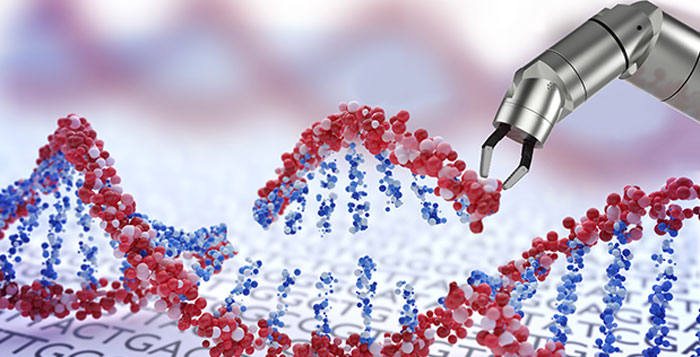The Defense Advanced Research Projects Agency (DARPA) has awarded project funding worth up to $41 million to GE Research and a multi-disciplinary team that includes the Broad Institute, DNA Script, MEDInstill, Molecular Assemblies, and the University of Washington through a new program from called NOW (Nucleic Acids On-Demand Worldwide).
NOW aims to accomplish a rapidly scalable and deployable production process to dramatically increase the speed at which new vaccines, such as the recently approved COVID-19 vaccines, could be deployed to people in need.
DARPA’s NOW program, managed by Dr. Amy Jenkins in the Biological Technologies Office, was created to develop a rapid, mobile medical manufacturing platform for producing, formulating, and packaging DNA and/or RNA-based vaccines and therapeutics for use in stabilization and humanitarian operations and to better prepare deployed, field-forward forces against bio-threat attacks and emerging infectious disease. Developing this type of platform would enable the deployment of vaccines and therapeutics in just days vs. weeks.
GE’s project, called RUN FAST (Rapid Universal Nucleic Acids using Fieldable Automated Synthesis Technology), will leverage the expertise of the GE Research team, led by John R. Nelson, Ph.D., building automated systems in the biological production of medicines and therapies with a novel synthetic method for making DNA and RNA to assemble a complete mobile medical manufacturing platform. Dr. Nelson, the principal investigator of the project, says this type of platform could be a game-changer, stating, “We think the world really needs this kind of advance to be prepared for unexpected challenges like what we have seen recently with COVID-19. Having the ability to produce small batches of ready-to-use vaccines in under 3 days at the site of need would enable widespread deployment of doses at an unprecedented speed.”
Until just recently, all the steps required to produce a DNA or RNA- based vaccine were manual, and significantly, required the use of bacterial cultures for bio-production of the DNA used. This use of bacterial cells then necessitates the use of multiple purification steps to eliminate impurities. DARPA recognized the unique and broad capabilities of this team not only to incorporate synthetic DNA production, but to automate and integrate all of the steps into a streamlined workflow to create this portable production system.
The novel synthetic method to produce industrial amounts of DNA, Dr. Nelson says, will be key towards enabling the new production system, stating, “Our team has experience and expertise using enzymes to make DNA synthetically instead of purifying it from living cells. This eliminates the requirement for bacterial cultures and the purification steps that entails. We believe that this reaction can be scaled easily in size and because it doesn’t use living cells that need to be fed and cared for and cleaned up after, can be automated.”
Dr. Nelson and the GE Research team is in the final stages of a project with the U.S. Department of Defense’s Defense Threat Reduction Agency (DTRA) to develop a faster method for making doses of DNA-based vaccines. Similar to the new DARPA project, the team’s research and technology is focused on the speed of amplifying or scaling the manufacture of a given vaccine. The new project with DARPA represents a significant opportunity to accelerate needed advancement to ready this new mobile vaccine production platform.


